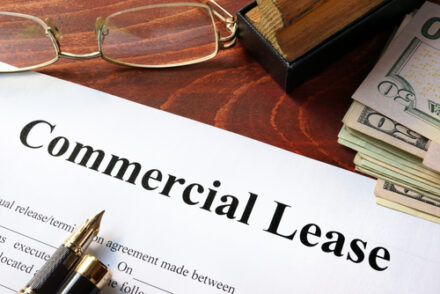
Surrendering a lease for commercial premises
10th July 2024 by Claire Taylor
If your business requirements have changed, and you need to get out of your current lease, a surrender can be an attractive option – as long as your landlord is willing to agree. Alternatively, your landlord may want the property back for redevelopment and approach you to discuss surrendering your lease.
‘There are different ways to organise and document a surrender and it is important to get good legal advice to make sure you do not leave important issues unresolved,’ explains Claire Taylor, Partner in the Commercial Property team with Laceys. ‘It must be a two-way process, with landlord and tenant agreeing on when the lease will end and whether either of them owes the other any money.’
‘You must also make sure you deal with things like repairing obligations and any outstanding breaches of covenant,’ Claire continues. Your solicitor will guide you through the process and help you achieve a clean break.
Agreeing the process
There are some fundamental issues to decide about how a surrender will work. If you want to leave the property completely, you will want to surrender the whole of the premises back to your landlord. As an alternative, you might be able to agree to reduce the size of the property you occupy (so you pay less rent) by surrendering only part. This might not suit the landlord and will depend on how easy it is to subdivide the property, but it may be worth asking.
If there are no arrears of rent or other liabilities to settle, you can surrender with no formal document. This method is called a ‘surrender by operation of law’ and relies on you leaving the property, removing everything that is yours and handing back the keys. If the landlord makes it clear in some way that they accept your surrender, the lease will end.
The alternative approach is to document the surrender with a formal deed. This will either be a deed of surrender or, if your lease was granted for more than seven years and is registered at the Land Registry, a deed transferring it to your landlord.
A formal deed has the advantage of making it entirely clear that the lease has been surrendered and on what terms. In general, your solicitor will advise a deed if there is any money changing hands or you need confirmation that any past breaches (such as failing to repair properly) have been settled and released.
It is sometimes helpful to have an advance contract under which you and your landlord agree that you will surrender your lease either on a specific future date or when a particular condition has been fulfilled. For example, you may be agreeing a surrender of your lease at one property because your landlord has asked you to move to another one which is being refurbished. In that case, you might have an agreement to surrender which is conditional on the refurbishment works being completed and the new property being ready for you to move in.
If you are entering into an agreement to surrender, you must get your solicitor to ensure your interests are properly protected and that all the necessary formalities are followed.
Negotiating a settlement
A surrender is forward looking. It means that you are no longer bound by the lease and have no more obligations from the date of the surrender. The key thing to remember is that it will not automatically wipe the slate clean if you owe the landlord money for past rent or have failed to comply with all your obligations while you have been a tenant.
Where this is the case, your solicitor can help you negotiate a settlement with your landlord. The aim will be to agree a payment which the landlord will accept in full settlement of all your outstanding obligations. This will typically cover any arrears of rent or other money, any outstanding repairs (referred to as dilapidations), and any service charge that would otherwise have become due when the landlord carries out the annual service charge reconciliation.
In return, you will get an express release from all past liabilities under the lease as well as future ones, so both you and the landlord can draw a line under it and move on.
Payments in advance
Rent is usually paid in quarterly payments in advance and the same is true for estimated payments on account of service charge. This means that if you surrender your lease, you may already have paid rent and service charge for a period after the surrender date. Tenants are often surprised to find that unless this is clearly covered in the lease, the landlord is not obliged to repay that money. Your solicitor will check what your lease says on this point. In practice, even where it is not covered, many landlords will be prepared to negotiate a refund of advance payments as part of the overall settlement but you should not take this for granted.
Impact on guarantors, subtenants, and lenders
If you have a guarantor for your obligations under the lease, they will be released in the same way as you on a surrender. There will be no future liabilities, but past obligations will be released only if this is expressly set out as part of the surrender.
If you have sublet the property, the sub-lease will continue despite you surrendering your lease. You will effectively drop out of the picture, and your landlord will become your subtenant’s direct landlord.
There is one other technical but important point your solicitor should check and that is whether your landlord has a mortgage secured on the property. If the answer is ‘yes’, your landlord may need their lender’s consent before being able to accept your surrender. This is a potential trap for landlords and tenants who overlook it, because any surrender they think they have entered into will be void if a lender’s consent was not obtained when it should have been.
How we can help
A swift and cooperative surrender can give you and your landlord flexibility when the needs of your business change. Our team of expert property lawyers will ensure that you are able to leave the property confident that you will not be hit with any unexpected liabilities in the future.
For further information, please contact Claire Taylor on 01202 377817 or email c.taylor@laceyssolicitors.co.uk
This article is for general information only and does not constitute legal or professional advice. Please note that the law may have changed since this article was published.



